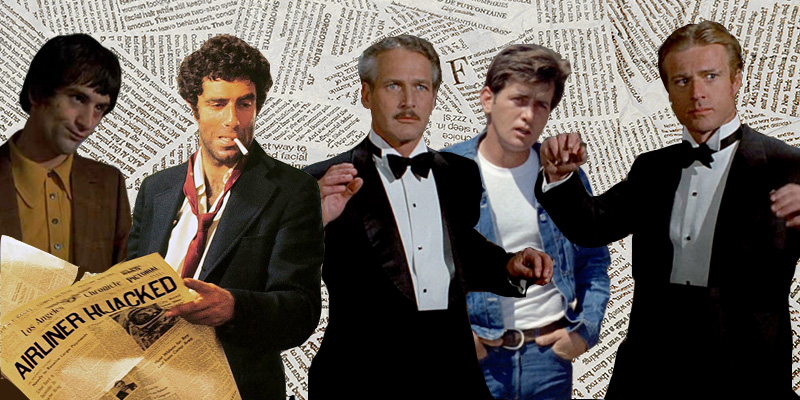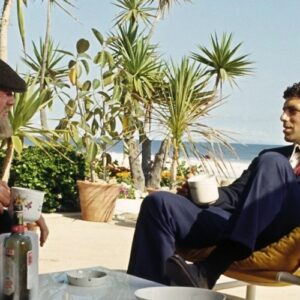We have a proposition for you.
You’ve heard it before that 1971 is the best year that crime movies have ever had. The French Connection, Shaft, Dirty Harry, A Clockwork Orange, Diamonds Are Forever, Get Carter, Klute, The Anderson Tapes. Even the non-crime movies are amazing: Willy Wonka and the Chocolate Factory, The Last Picture Show, McCabe and Mrs. Miller.
Maybe you’ve heard it floated that 1972 is the best year for crime movies. The Godfather, Deliverance, The Hot Rock, Superfly. Not as many crime masterpieces as the previous year, but a contender for its first installment in the saga of the Corleone crime family.
And you’ve definitely heard it argued that 1974 is actually the best year for crime movies. The Godfather Part II, Chinatown, Murder on the Orient Express, The Conversation, the Taking of Pelham 123, Sugarland Express.
But we, the theoreticians at the genre salon known as CrimeReads, submit that 1973 is actually the greatest year crime movies ever had. Yes, it’s the year without a Coppola film. BUT! Get a load of this lineup. The Long Goodbye, The Sting, Serpico, Mean Streets, Paper Moon, The Friends of Eddie Coyle, Badlands, Dillinger, The Last of Sheila, Papillon, The Outfit, Scarecrow, Live and Let Die. Plus, of course, 1973 saw masterpieces in horror and sci-fi: Don’t Look Now, Soylent Green, and The Exorcist.
That’s a wallop of a roster, folks. And so today, a day in a year that happens to be half a century after 1973, we invite you to reflect on these movies with us. Yes, that’s right, today, our whole website is devoted to the crime films of 1973.
The crime films of 1973 might represent a return to more personal crime stories. Not to essentialize too much, but while movies in 71, 72, and 74 focus on large-scale organizations, untamable circuits (families) of crime and corruption, 1973’s movies tend to take collective pause and focus on the lives of their scrappy everyman (or everygirl, in the case of Addie Loggins) protagonists. There’s something very mortal, very humanistic about 1973’s crime movies. I won’t say they are the grittiest crime movies of them all (nothing is grittier than The French Connection), but there’s something… fragile, something local about them. These are movies about people. These movies are even about kids.
These are movies about being nervously undercover, feeling alone and looking for a friend, not having much and wishing for the world. These are movies about living day to day and being exhausted with life. They are movies about people who have had enough and are desperate to change their paths. They are movies about feeling like, at any moment, the whole world might turn against you.
These themes are very important to the development of the medium! Where would crime cinema be without the lonely, the friendless, the family-less, the alienated, the isolated, the small-timers, the ordinary people who take matters into their own hands, the unlikely undercover operatives, the rumpled and casual (and possibly stoned) PIs? Nowhere! Nowhere!
So anyway, whether or not you agree, come and travel to Illinois and team up with Johnny Hooker and Henry Gondorff in George Roy Hill’s legendary film about an impossible confidence game. Or head to Los Angeles and tag along with Elliott Gould’s rumpled Marlowe. Board a yacht with a group of old friends only to discover that you’re not friends at all. Or join in with a gang of ragtag grifters and pull off a scam.
If this roundup proves nothing else, it’s that the 70s were the greatest decade of crime movies. And if you don’t agree with us about which individual year was the best, you have to agree with us about the whole thing.

















